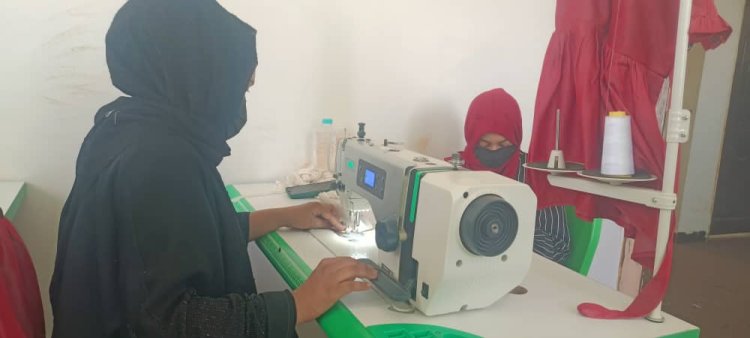From Medicine to Sewing: Afghan Girls Deprived of Education

Since the Taliban regained power and schools and universities were closed to girls, millions of hopeful dreams were shattered. Among them was the dream of Masouma Mohammadi — a 28-year-old woman who had reached her third year of medical school and had hoped to become a doctor one day. But today, instead of a stethoscope, she lives her life behind a sewing machine.
Masouma now works in a small tailoring workshop on the outskirts of Kabul, alongside other young women who share a similar fate, sewing clothes. With a bitter smile, she says:
"If the universities hadn’t been closed, I would be a doctor now, serving my people. But instead of treating patients, I now sew clothes for others."
Masouma's story is not unique. According to UNICEF, around four million children in Afghanistan are currently out of school. Due to the ban on girls' education beyond sixth grade, millions of Afghan girls have been deprived of access to school. This, despite repeated promises by the Taliban to make girls' education possible within the framework of Islamic law — promises that have yet to be fulfilled.
Masouma says being deprived of her education led to intense psychological distress:
"I felt like everything was over. I was deeply sad. My friends told me to learn a skill. So now I sew. At least it gives me something to do."
She recalls the days when she was studying medical books with passion — and now, she measures fabrics and sews clothes for customers. Her daily earnings range from 100 to 170 Afghanis, and if business is good, she can make up to 6,000 Afghanis a month — an amount that barely covers basic living expenses.
"At least tailoring keeps us from being locked inside the house," she says. "But if I could have just one wish, it would be to return to university. I wish I could study again someday."
Masouma is not alone. Many other young women who once dreamed of becoming teachers or engineers now find themselves sewing or cooking traditional food for a living. While these small businesses may generate modest income, they are no substitute for education, personal growth, and meaningful participation in society.
What threatens Masouma and thousands of other girls is not just poverty and deprivation — but being forgotten. Forgotten is a generation of women who could have shaped a brighter future for themselves and their country.
